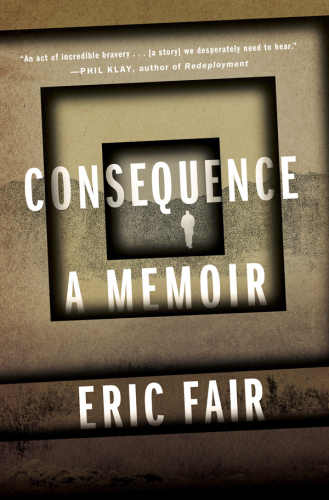
Consequence
A Memoir
کتاب های مرتبط
- اطلاعات
- نقد و بررسی
- دیدگاه کاربران
نقد و بررسی

Starred review from May 2, 2016
In this harrowing memoir, Fair, an interrogator at the Abu Ghraib prison in Iraq, expands on his 2007 Washington Post editorial, in which he countered the claim that detainee abuse was a rare, isolated phenomenon. Fair, U.S. Army veteran trained as an Arab linguist, yearned to rejoin the armed forces after the 9/11 terrorist attacks but was derailed by a severe heart condition. Fortunately, private contractors were not as picky, so with no physical exam he was hired at $120,000 per year and sent to Abu Ghraib. Fair details the way he conducted interrogations, emphasizing that he followed accepted procedures approved by superiors. Official guidelines do not mention torture but interrogators, mostly untrained, were urged to "get things done." Fair observed prisoners being left naked in freezing rooms, beaten, and tied in excruciating positions. He committed some of the same acts, but his conscience began to gnaw at him. Some colleagues tortured enthusiastically; others shared his discomfort. Fair began having nightmares and drinking heavily. He came home, but his drinking, nightmares, and erratic behavior worsened. His heart failed, requiring a transplant, but he gradually pulled himself together through the help of his wife and his faith. Fair is a gifted writer, and his capacity for self-examination makes this work both deeply insightful and moving.

Starred review from February 1, 2016
A candid and deeply unsettling account of the author's work as a government contractor in Iraq charged with interrogating detainees in Baghdad, Fallujah, and Abu Ghraib. A devout Presbyterian who grew up in Bethlehem, Pennsylvania, attended Gordon College, a Christian school, and earned a degree at Boston University, Pushcart Prize winner Fair enlisted in the U.S. Army in 1995 out of a desire to protect people. After learning Arabic, he was deployed to the Middle East as a linguist but found Army life monotonous. Torn by conflicting impulses (two psychologists deemed him unstable), he served briefly as a police officer but felt destined to become a minister. In 2003, he signed on as an interrogator with CACI International. The author relates his experiences in a low-key, matter-of-fact manner that nonetheless makes palpable his confusion about his life and goals. His disquiet became intolerable during his interrogations of Iraqi prisoners of war, which involved sleep deprivation, stress positions, isolation, and other forms of officially sanctioned torture. "I shouldn't be here," he writes. And: "I've done things that cannot be undone." Feeling guilty and ashamed, Fair realized he had sinned: "There is to be no redemption for me in Iraq." Eschewing abstract discussions of torture and the war, the author offers a beguiling personal narrative that forces readers to share his pain and uncertainty over his circumstances. "I cannot ask God to accompany me into the interrogation booth," he writes. Told against the background of his failing heart (he required a transplant), his failing hometown (Bethlehem Steel went bankrupt), and his war-strained marriage, his affecting narrative points up the larger failures of interrogators like himself to prevent abusive acts and of the country to end its endorsement of torture. Fair recounts his drinking and horrible nightmares, friendships with fellow contractors, and encounters with Iraqis suspected of anti-coalition activities. Some sections of the book have been redacted. A startling debut from a haunted individual who wishes he had left Iraq earlier "with my soul intact."
COPYRIGHT(2016) Kirkus Reviews, ALL RIGHTS RESERVED.

March 1, 2016
Fair was interrogating prisoners at Abu Ghraib just before the Iraqi prison became a household name. In this no-holds-barred memoir of his time working as an interrogator and Arabic linguist in the early years of the Iraq war, the army veteran and former police officer and seminary student takes an unflinching look at the challenges faced by the contractors working alongside the military. His two tours in Iraq, one as a civilian contractor and the other as an intelligence analyst with the National Security Agency, took him from the plywood interrogation booths at Abu Ghraib to Fallujah and Baghdad. He recounts the incompetence and disorganization he witnessed during that time, particularly with the private contractors, who sent their employees into a war zone with slow-to-materialize promises of armor and weaponry. Told with the dispassionate candor of a police report, Fair's experiences offer a harsh critique of American efforts in Iraq, particularly when it comes to torture. He came home haunted by the memories and ashamed of his actions, trying to find solace through sharing them. Important reading for anyone who is following the continuing reports on our misadventures in Iraq.(Reprinted with permission of Booklist, copyright 2016, American Library Association.)

























دیدگاه کاربران